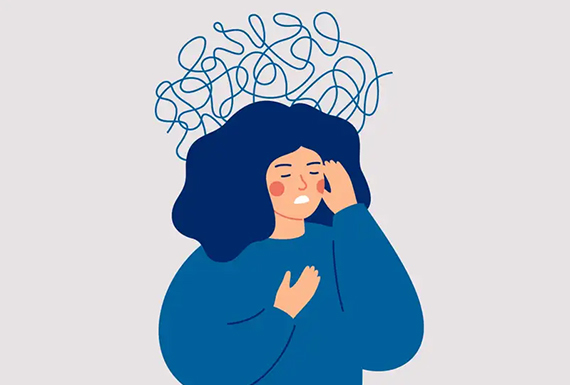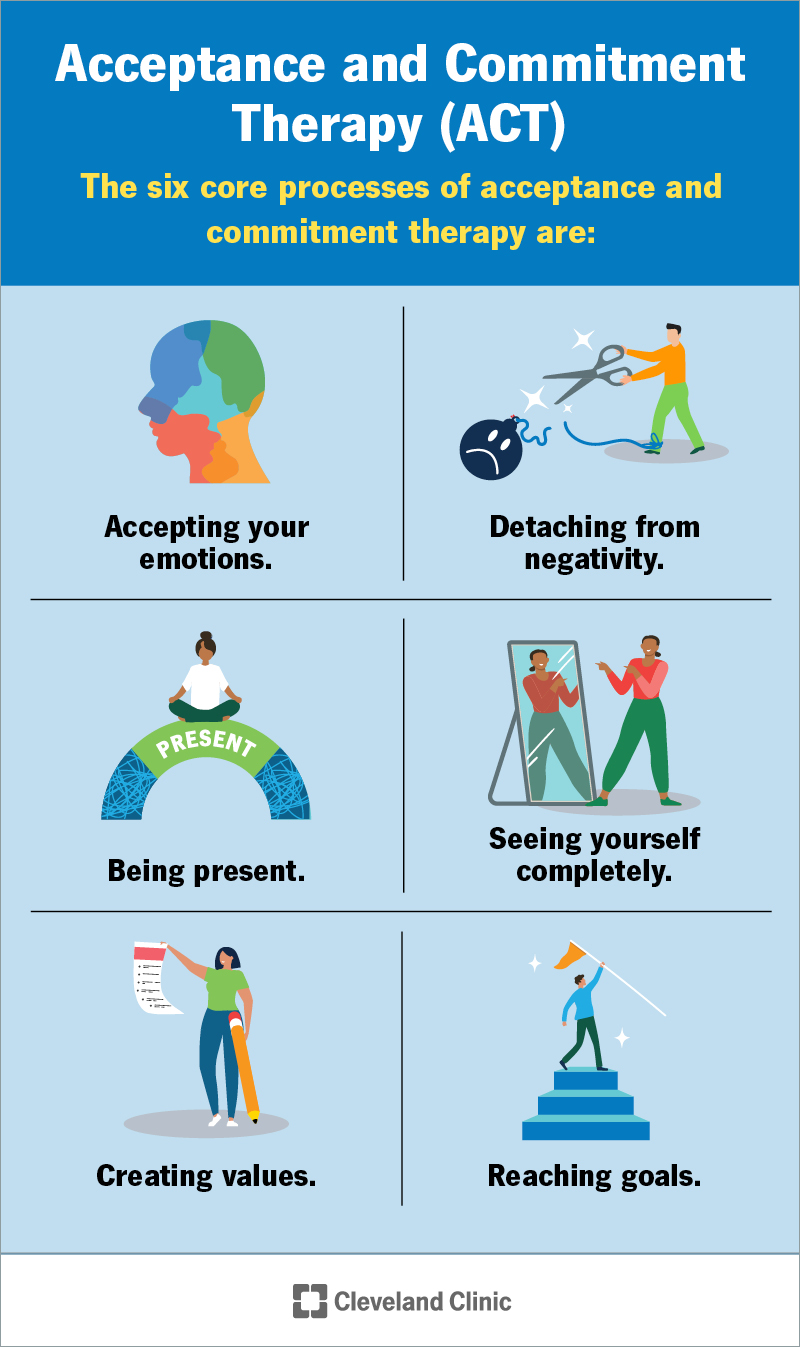Efficient Methods in Therapy for Anxiety Disorder: A Course to Healing
When dealing with anxiety disorders, you could really feel unsure and overloaded of where to turn. Effective coaching approaches can pave the way for recuperation, supplying you with the tools to navigate your obstacles. From cognitive-behavioral methods to mindfulness practices, each strategy uses distinct advantages. Recognizing how these strategies collaborate can make a substantial difference in your trip. What are the vital components that will lead you towards lasting adjustment?
Comprehending Anxiety Conditions: A Comprehensive Review
It's essential to recognize that they incorporate a range of conditions identified by excessive concern or fear when you think regarding anxiety disorders. These conditions can show up in various methods, consisting of generalized stress and anxiety condition, panic problem, and social anxiety condition. You could experience symptoms like rapid heartbeat, sweating, or trouble focusing. It prevails to feel overwhelmed, and these sensations can interfere with daily life.Understanding the origin of stress and anxiety is essential. They can come from genetics, mind chemistry, or ecological variables. You may find that certain circumstances activate your stress and anxiety, making it vital to recognize these triggers.
Cognitive Behavior Modification (CBT): Reshaping Thought Patterns

Mindfulness and Relaxation Techniques: Growing Present-Moment Awareness
Mindfulness and relaxation strategies help you grow present-moment awareness, enabling you to take care of anxiety better. By concentrating on the present moment, you can damage devoid of the cycle of concern and rumination that often fuels stress and anxiety. Beginning by practicing deep breathing exercises. Inhale gradually via your nose, hold for a moment, then exhale via your mouth. This simple method can relax your mind and body.Engage in mindfulness reflection by reserving a couple of mins daily to observe your thoughts without judgment. Focus on your breath, feelings, and the noises around you. You might also find worth in dynamic muscular tissue relaxation, where you strained and relax each muscular tissue group, advertising mental and physical ease.Incorporating these techniques right into your day-to-day regimen can develop a better feeling of control, minimize anxiousness signs, and improve your general well-being. Remember, consistency is vital to experiencing the benefits.
Exposure Therapy: Facing Fears Gradually
Exposure therapy helps you encounter your anxieties progressively, permitting you to construct self-confidence over time. By using gradual exposure techniques, you can gradually challenge what makes you nervous while establishing efficient coping systems. This process not only decreases your anxiety yet likewise equips you to manage anxiety more effectively.
Gradual Direct Exposure Strategies
You can successfully decrease anxiety and reclaim control over your life when you face your worries gradually. Steady exposure techniques entail facing your fears detailed, starting with much less daunting situations. You could begin by visualizing the feared scenario, after that advance to viewing video clips or photos associated with it. Ultimately, you can practice challenging the fear in real life, yet only when you really feel ready. This technique allows you to develop self-confidence as you move via each stage. Keep in mind to rate yourself; hurrying can increase stress and anxiety. Commemorate little triumphes along the way, as each progression equips you. By continually applying these strategies, you'll find that your concerns begin to lose their hold on your mind.
Structure Coping Mechanisms
Building reliable coping mechanisms is crucial for managing stress and anxiety, specifically as you face your worries slowly via exposure therapy. Begin by identifying your particular concerns and damaging them down right into manageable steps. In this manner, you can progressively challenge each fear without becoming overloaded. If you have a hard time with social scenarios, beginning by exercising tiny communications, like greeting a neighbor.Alongside gradual exposure, incorporate leisure techniques such as deep breathing or mindfulness to calm more info your mind before encountering triggers. Maintain a journal to track your progression and commemorate tiny triumphes. Border yourself with helpful good friends or a specialist who can direct you. Keep in mind, it's a journey-- patience and persistence will certainly reinforce your coping systems, causing higher durability against anxiousness.
Encouraging Therapy: Building Trust and Rapport
To properly sustain somebody with anxiety, developing trust fund and connection is vital from the very initial session. You'll desire to produce a safe room where they feel comfortable sharing their thoughts and feelings without judgment. Energetic listening is crucial; show real rate of interest in what they share. Acknowledge their sensations and verify their experiences. It is necessary to be understanding, as this assists build a link and motivates openness.Be consistent in your technique and preserve discretion to additional strengthen that trust fund. Use open body movement and make eye get in touch with to convey your listening. Remember, your patience goes a lengthy way; structure rapport takes some time, and it's vital to value their speed. By fostering this helpful environment, you'll equip them to engage even more fully in the restorative process, making it much easier for them to explore their stress and anxiety and pursue recuperation.
Group Treatment: Shared Experiences and Collective Healing
Team therapy can be an effective device for those taking care of anxiety conditions, as it allows people to share their experiences and locate solace in the understanding of others. In this encouraging environment, you can reveal your sensations without worry of judgment. Hearing others' stories can normalize your very own experiences, making you really feel less alone in your struggle.Participating in group therapy aids you create coping methods via shared expertise and insights. As you listen to others, you might uncover brand-new ways to tackle your anxiety that you hadn't thought about before.Moreover, the cumulative recovery that occurs in these sessions can foster a sense of neighborhood, advising you that you're not encountering your obstacles alone.Building connections with others who understand your struggle can increase your confidence and inspiration to challenge your anxiousness. Team treatment develops a room where development and healing become a shared journey, empowering you to take steps toward recovery.
Integrating Lifestyle Changes: Holistic Approaches to Anxiety Management
While therapy provides vital assistance, integrating way of life changes can significantly improve your capability to handle stress and anxiety. Begin by integrating routine physical activity into your routine. Workout launches endorphins, which can raise your state of mind and reduce stress and anxiety. Next, pay interest to your diet regimen. Eating a balanced diet abundant in fruits, veggies, and whole grains can positively influence your psychological well-being. Do not ignore sleep-- go for 7-9 hours per evening, as high quality rest is essential for psychological regulation.Mindfulness practices, such as reflection or yoga exercise, can also aid you remain grounded and existing. Think about reserving time each day to exercise these methods. Limitation caffeine and alcohol usage, as they can intensify anxiousness signs. By making these all natural modifications, you develop a stronger structure for handling anxiousness, matching the advantages acquired from treatment. Remember, every tiny step depend on your course to healing.
Regularly Asked Questions
What Are the Usual Physical Symptoms of Stress And Anxiety Problems?
Common physical signs of anxiety conditions consist of rapid heart rate, lack of breath, muscle tension, sweating, and migraines. You could also experience tiredness, wooziness, or intestinal problems, which can further complicate your daily life.
The Length Of Time Does Therapy for Anxiousness Typically Take?

Therapy for stress and anxiety commonly takes a couple of weeks to numerous months, relying on your specific demands and progression. counselling for anxiety. You'll locate that normal sessions aid you establish dealing methods and get insights into your anxiety
Can Anxiety Disorders Be Completely Healed?

What Should I Carry out in a Panic Assault?
During a panic assault, focus on your breathing. Breathe in deeply through your nose, hold for a minute, then breathe out slowly - counselling for anxiety. Ground on your own by naming items around you, and advise yourself it will certainly pass
Are There Medications for Anxiousness Disorders?
Yes, there are numerous medications for anxiousness disorders, consisting of antidepressants and benzodiazepines. You must consult a medical care professional to discover the right treatment strategy customized to your particular demands and situations for the very best outcomes. When you think regarding anxiousness disorders, it's crucial to identify that they encompass a variety of problems characterized by excessive concern or fear. These disorders can materialize in numerous means, including generalized stress and anxiety problem, panic problem, and social anxiety condition. Building reliable coping systems is crucial for managing stress and anxiety, particularly as you encounter your anxieties gradually through exposure therapy. Group therapy can be an effective device for those dealing with anxiousness problems, as it permits people to share their experiences and find solace in the understanding of others. As you listen to others, you may discover new ways to tackle your anxiety that you hadn't considered before.Moreover, the collective healing that occurs in these sessions can foster a sense of community, advising you that you're not encountering your difficulties alone.Building links with others who comprehend your struggle can increase your confidence and inspiration to challenge your anxiety.